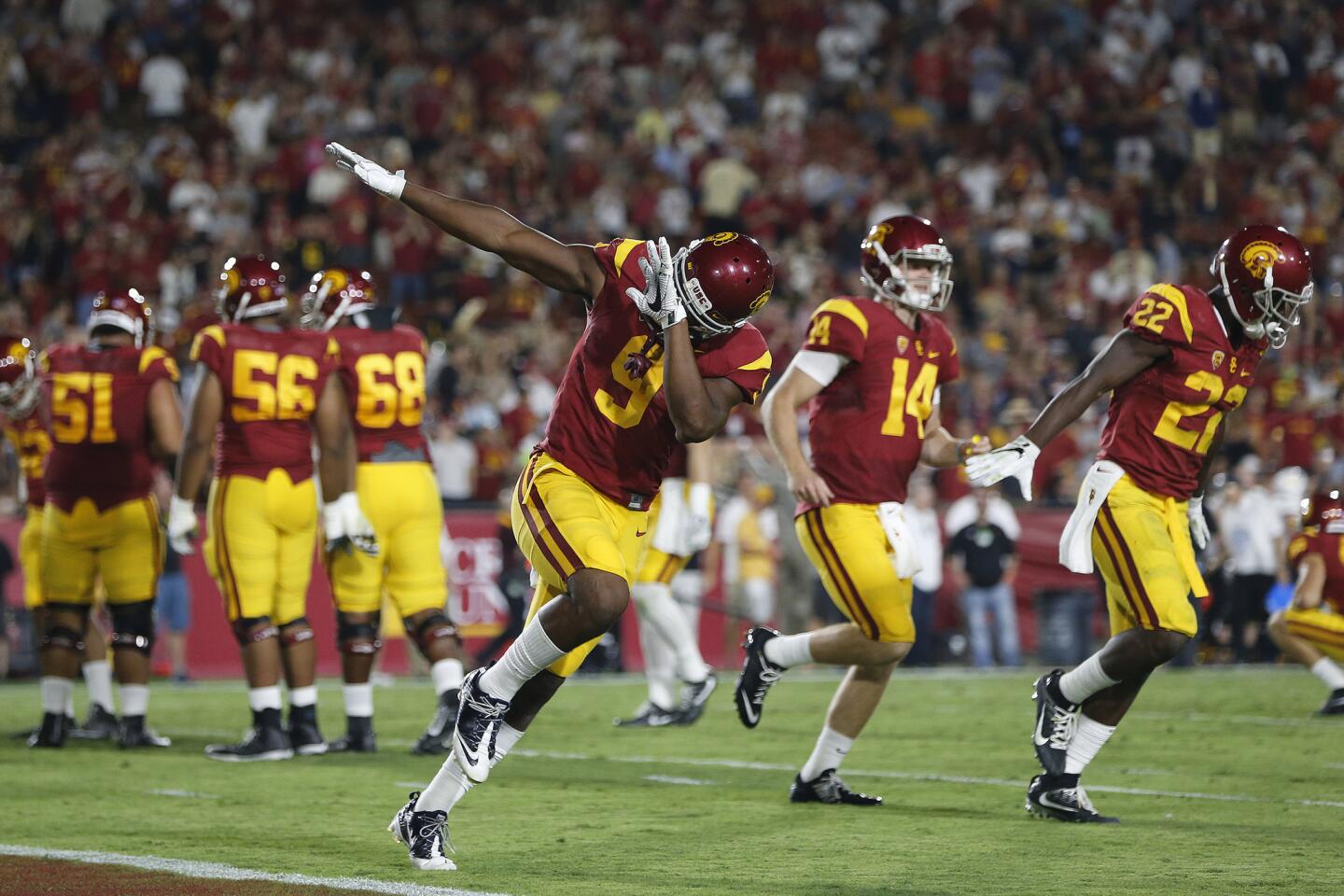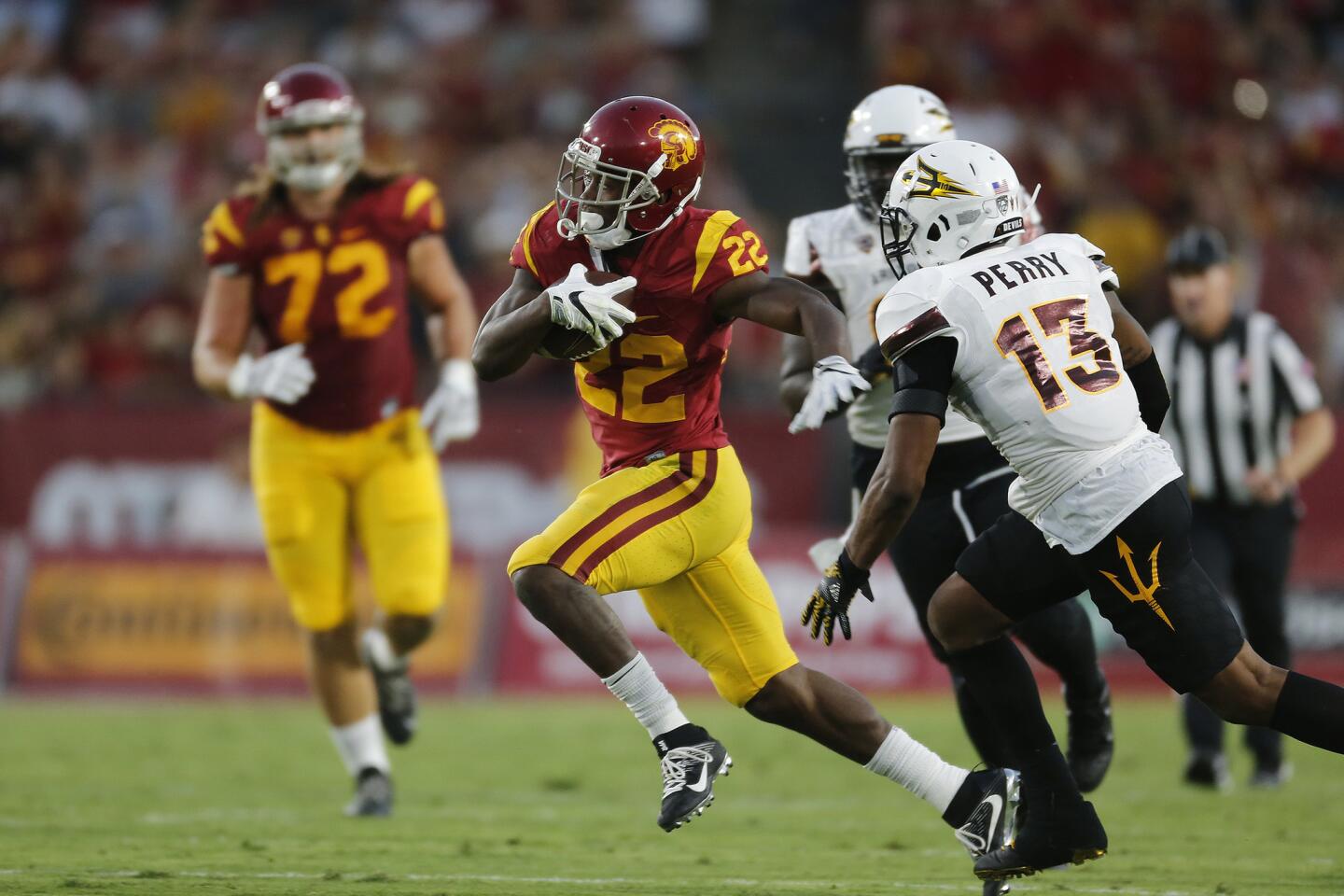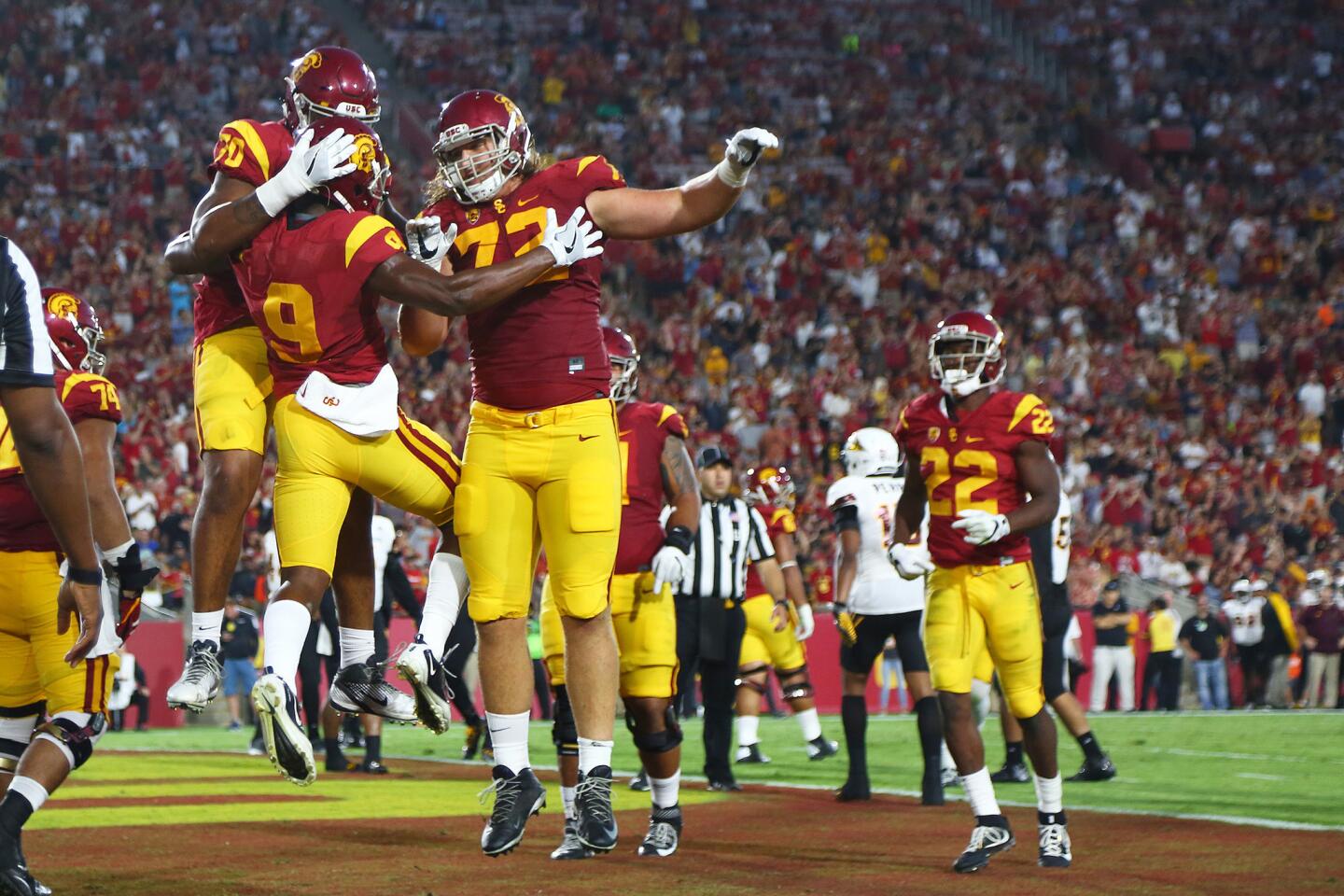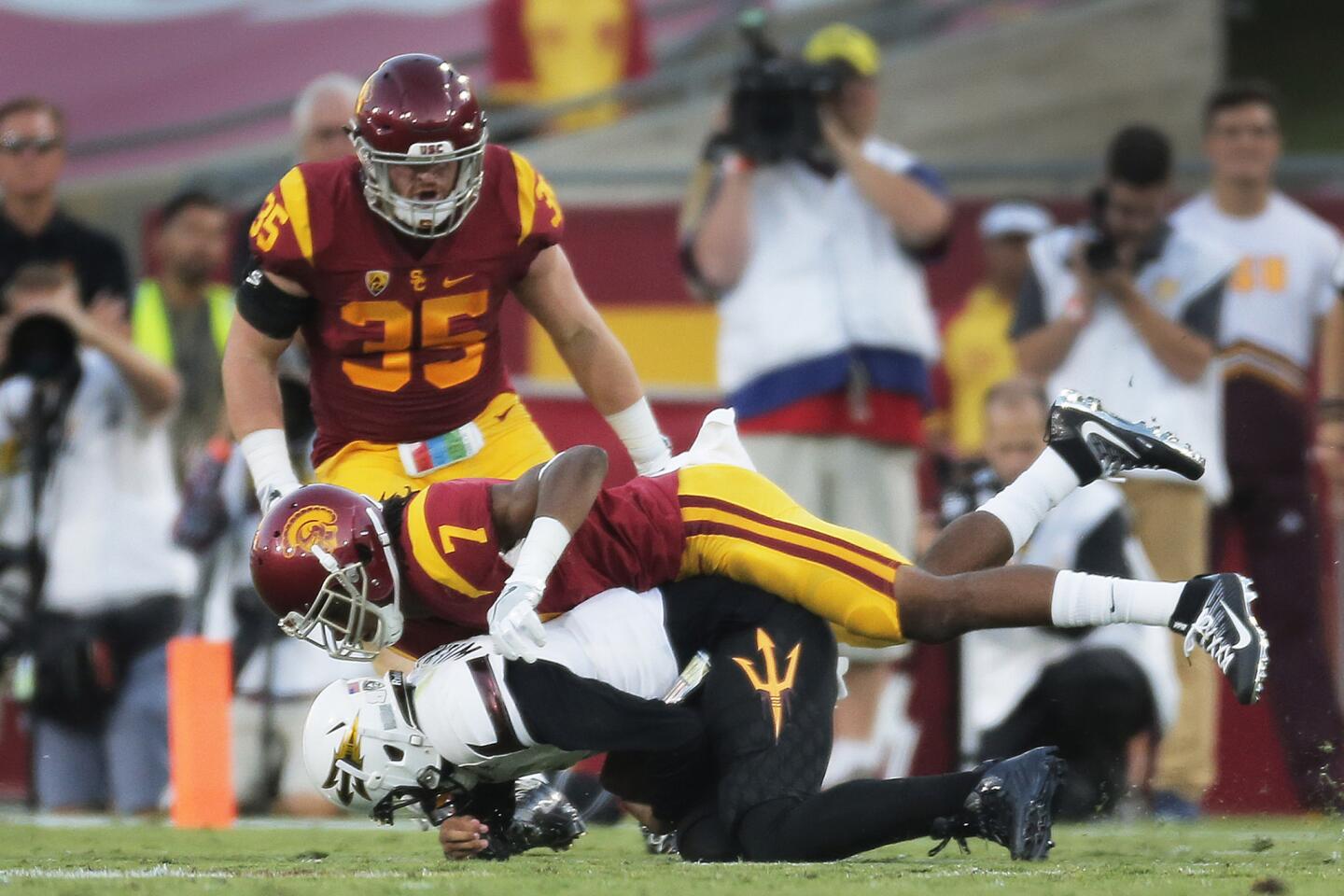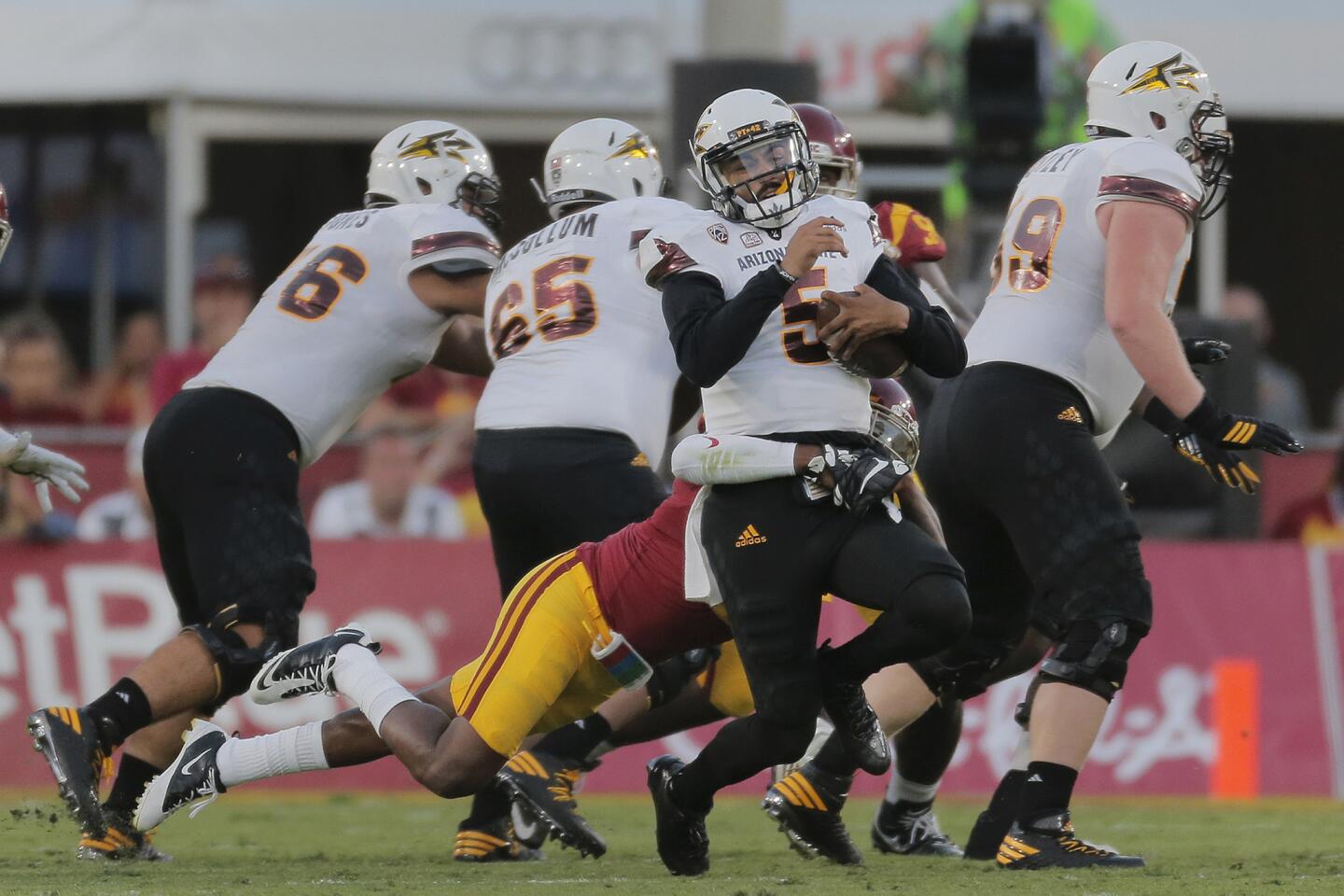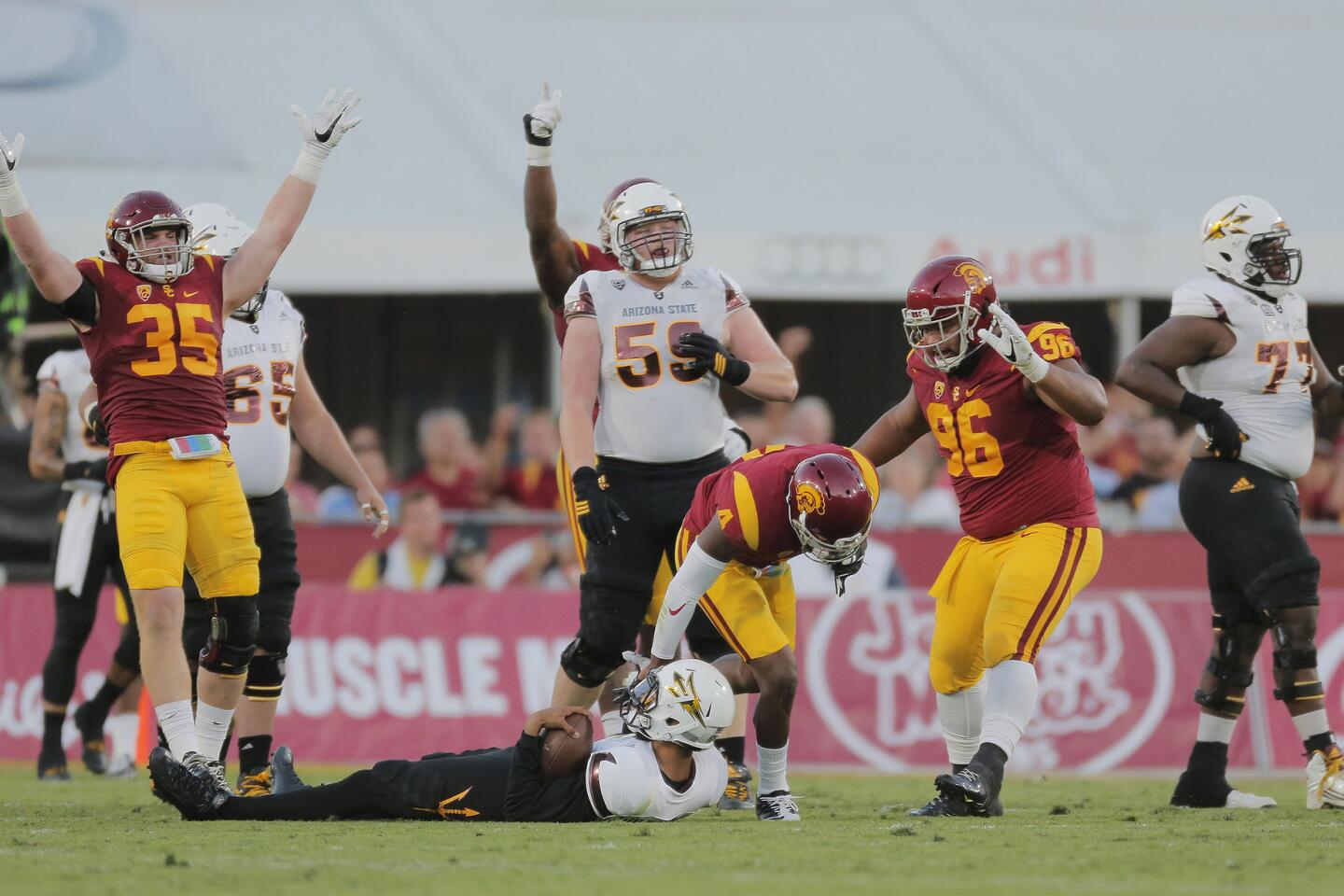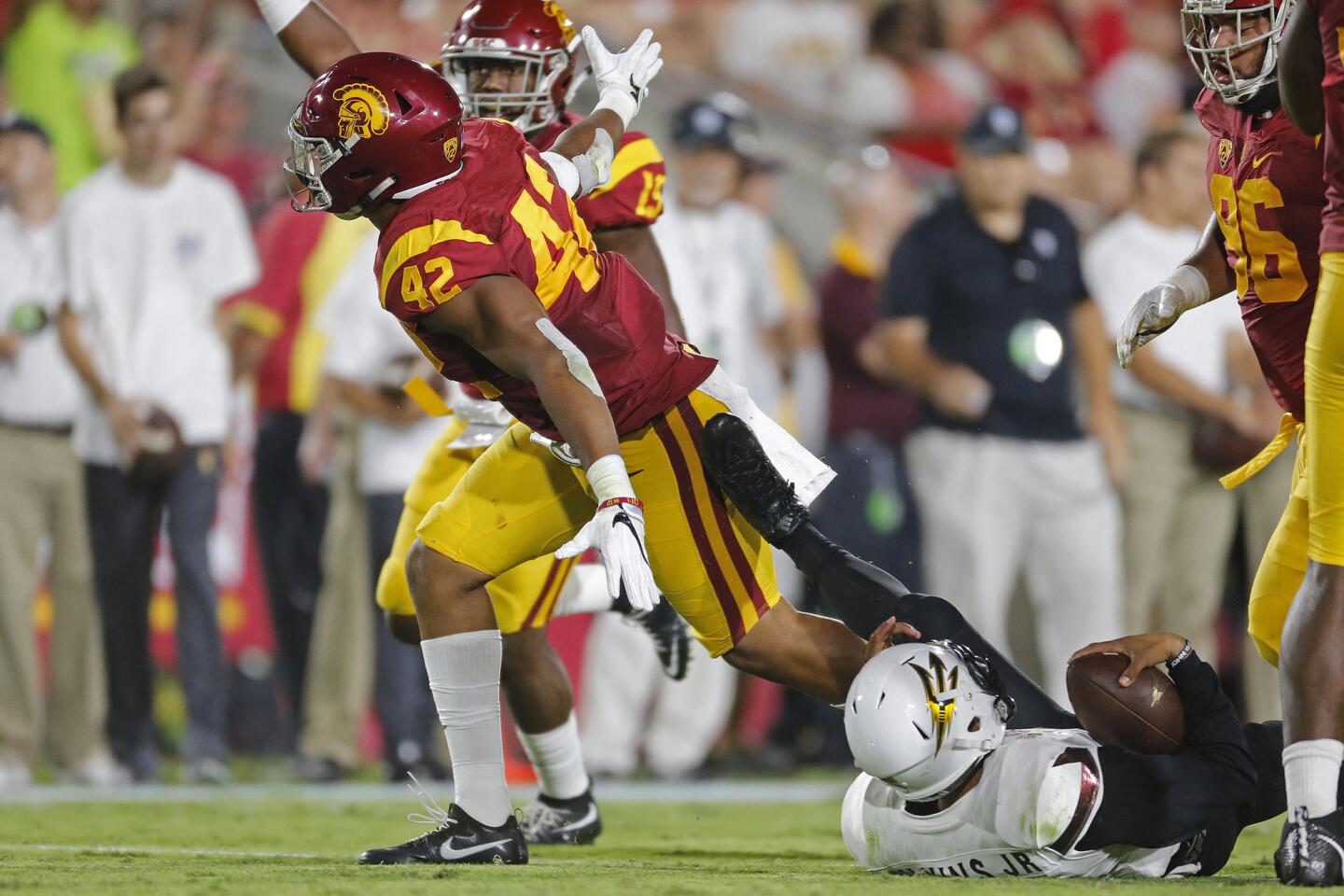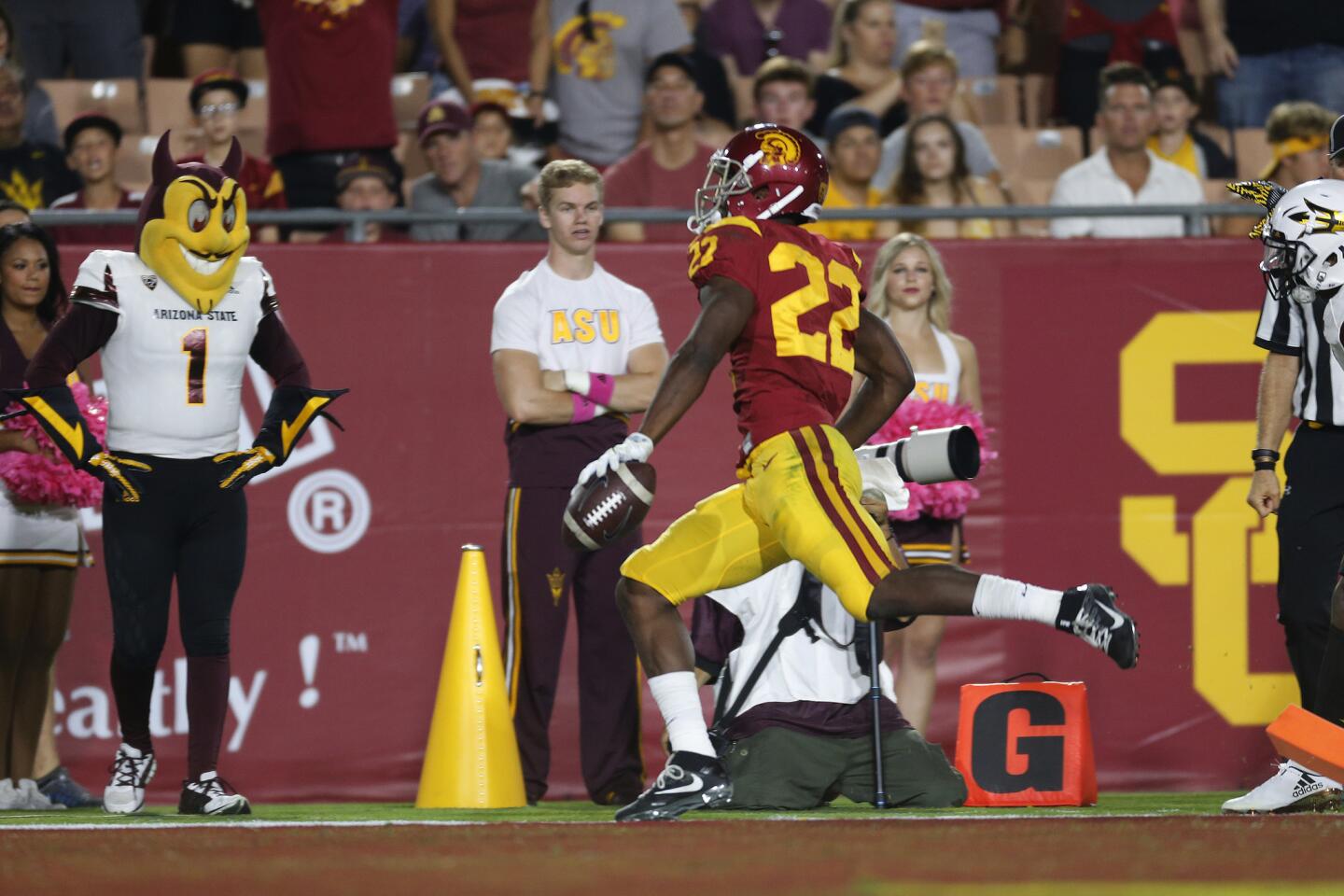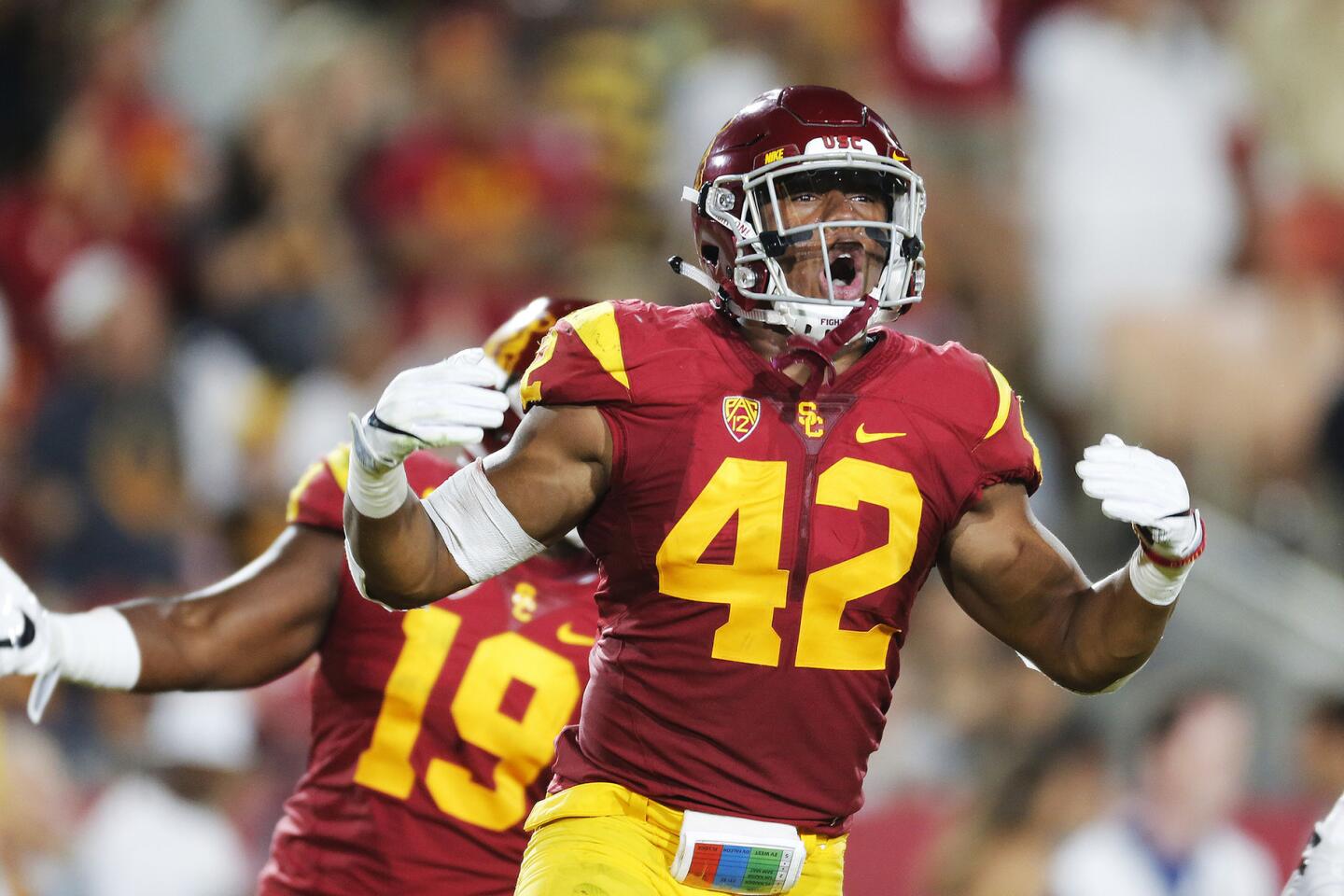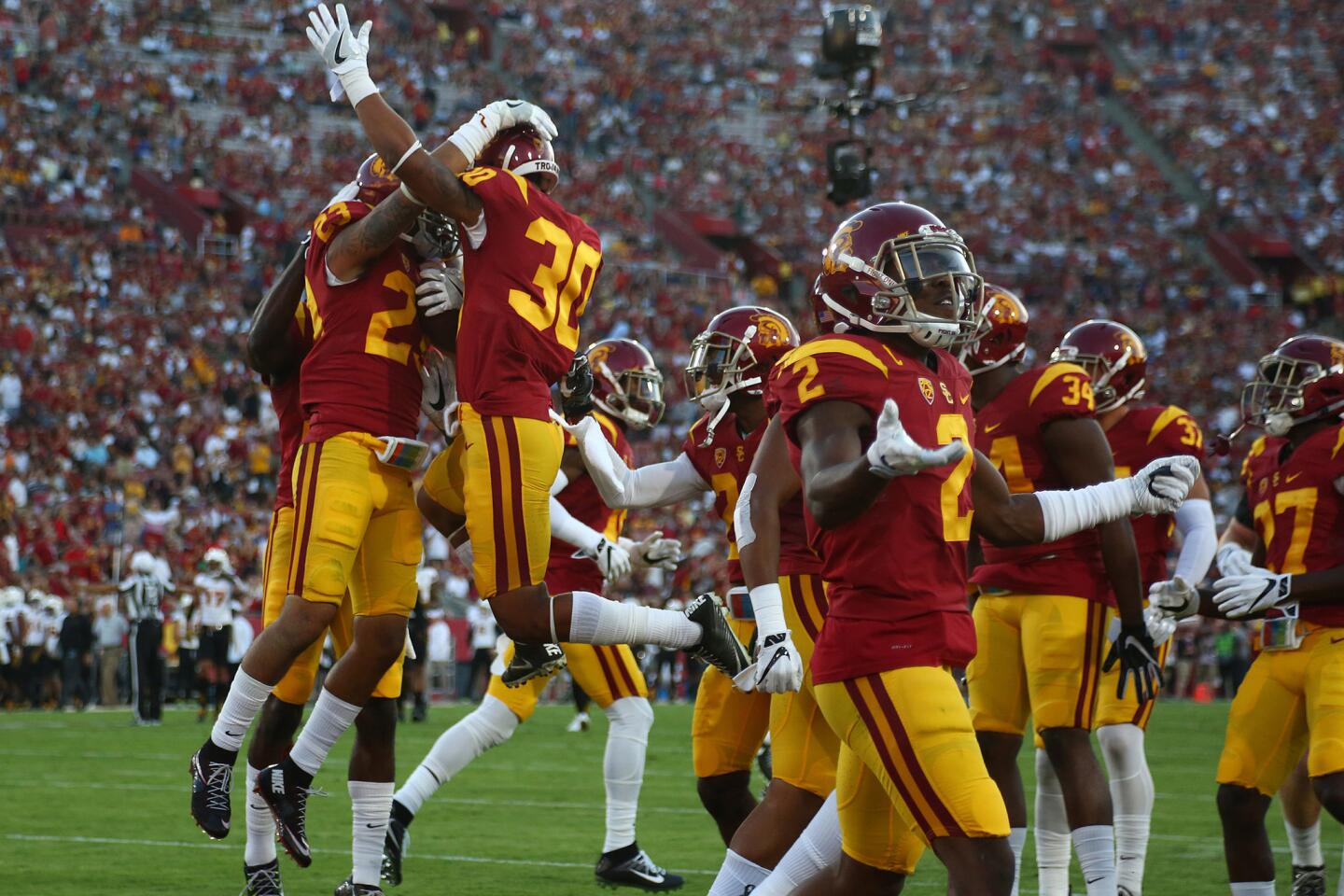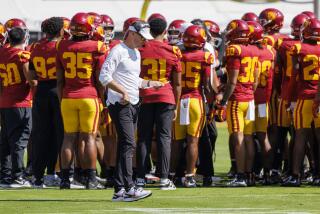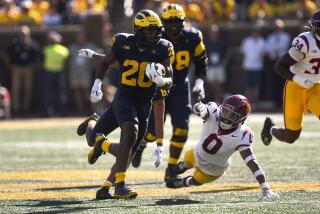Spread? Power? USC isn’t sure what to call Sam Darnold’s offense, but Trojans are happy it works
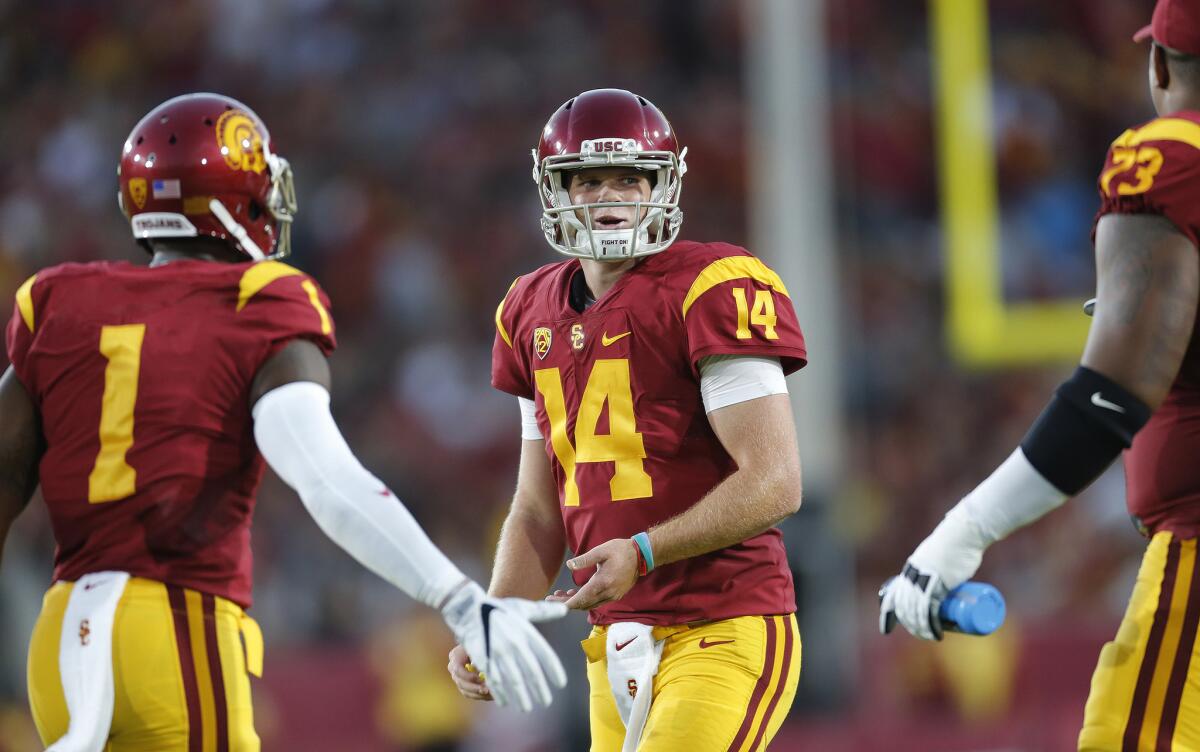
Sam Darnold considered his options in the third quarter of USC’s victory over Arizona State last weekend as if he were contemplating a dinner menu.
First, he held the ball out for Ronald Jones II. He sensed something better, though, and pulled back. To his left, a receiver was setting up for a tunnel screen, but he opted against that too.
Instead, Darnold tucked the ball, made a cut and barreled into the end zone.
It was a classic spread option play, a latent aspect of USC’s offense that has come to the surface in the past two weeks with the arrival of Darnold as the starting quarterback.
It was the reason why, on Monday, Colorado Coach Mike MacIntyre, preparing to face USC on Saturday, observed that the Trojans “completely changed their offense in the last game and a half.”
“They’re basically a spread football team now,” MacIntyre told reporters.
The comment ignited a small debate after USC’ s practice Tuesday, which highlighted an offense in a state of transition. All agreed that Darnold has been the impetus of an evolution: The Trojans want to be a power running team; recently, they’ve looked like a spread team.
So what are they?
“I think we’re a spread,” Darnold said. “But I think we like to run the ball a little bit more than the typical spread offense would. But, yeah, I guess we’re a spread, if you want to put it in literal terms.”
Offensive coordinator Tee Martin said that USC is “doing some of those concepts a little more.”
Coach Clay Helton poked a hole in the spread theory, explaining that a traditional spread uses four receivers and no tight ends.
And, Helton said, “we always have a tight end of the field.”
USC never expected its offense to fit neatly in any existing categories. In training camp, right tackle Zach Banner called USC’s offense the “smash and gun” — effectively, power football on fast forward. That is still the bedrock, but Darnold has further muddled the classification.
“Honestly,” receiver JuJu Smith-Schuster said, pausing to consider, “I can’t really say it’s a spread team. It’s a mixture of everything.”
What is clear is that Darnold has provided the balance and dynamism that USC had been lacking. Martin said he has adapted his calls to Darnold’s strengths: quick decision-making and a willingness to run and create.
Often, that has translated into spread-rooted plays like the run-pass option, when the quarterback can run himself — or hand off, in some plays — or throw, based on how he reads the defense. That’s how Darnold scored on the third-quarter touchdown. On USC’s first score of that game, he decided to pull up and complete a pass to Smith-Schuster in the end zone.
But it is the threat of the quarterback run, Helton said, that has unlocked USC’s flagging passing game.
“You’ve got to make a decision,” he said. “Are you going to guard the box with an athletic quarterback and a very talented back? Or are you going to go defend those wide receivers?”
Whatever USC calls it, and however it evolves from here, the difference has been transformative. USC is gaining almost 60% more yards on each play since Darnold became the starter, from 4.6 yards in USC’s first three games (a total that might be slightly depressed due to stout defensive competition) to 7.7 in the next two.
“If that’s it, if 200 yards a game rushing is spread, then whatever it might be,” Helton said.
Just good JuJu
The reemergence of Smith-Schuster has coincided with Darnold’s promotion. But, Darnold said, he might be receiving too much credit for sparking the receiver.
“To be honest, I think it’s just a coincidence, because it comes as he starts getting more one-on-one opportunities,” Darnold said.
Darnold also explained that USC’s other receivers have taken some pressure off Smith-Schuster.
Smith-Schuster caught 11 passes for a combined 99 yards and two touchdowns in USC’s first three games. In the two games since, he has caught 15 passes for 255 yards and three touchdowns.
Quick hits
Banner (sprained ankle) practiced Tuesday but was pulled after further discomfort in his ankle. … Safety Ykili Ross (shoulder sprain) and linebacker Jabari Ruffin (concussion protocol) did not practice and are each “50/50 at best” to play Saturday, Helton said. … Running back Aca’Cedric Ware (hand) and tight end Taylor McNamara (back strain) did not practice. … Cornerback Jonathan Lockett (shoulder sprain) participated in practice.
zach.helfand@latimes.com
Twitter: @zhelfand
More to Read
Go beyond the scoreboard
Get the latest on L.A.'s teams in the daily Sports Report newsletter.
You may occasionally receive promotional content from the Los Angeles Times.
